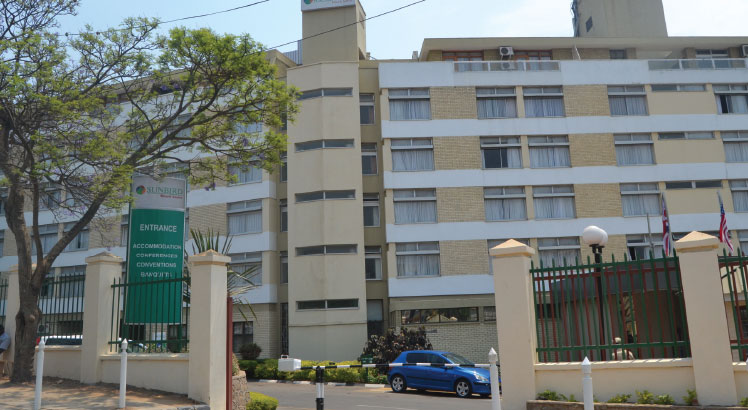Mixed fortunes for listed firms
The slowdown in business activity has brought mixed fortunes for firsm listed on Malawi Stock Exchange (MSE), with the banking sector poised to close the year on a high note unlike other sectors, published trading statements show.
In compliance with the listing requirements of the 16-counter MSE, listed companies is required to publish a trading statement as soon as there is a reasonable degree of certainty that the financial statements will differ by at least 20 percent from the previous corresponding period.
Of the published statements, four of the listed counters in the banking sectors are projecting higher returns compared to last year while stocks in other sectors such as hospitality, telecoms and property are showing mixed projections.
Profit after-tax for NBS Bank plc is expected to increase by 110 percent, FMB Capital Holdings (FMBCH) plc, which owns First Capital Bank, will rise by 30 percent, National Bank of Malawi plc by 30 percent, FDH Bank plc by 50 percent, Icon Properties plc by 70 percent and Sunbird Tourism plc by a whopping 240 percent.

However TNM plc expects its profit after-tax to decline by 90 percent while Blantyre Hotels Limited, which owns Ryalls Hotel, projects a loss after tax for the 12 months period to be more than 20 percent compared to the loss reported in the previous corresponding period.
BHL said the loss after-tax will arise due to the increase in finance costs incurred on its Lilongwe Hotel project.
In its published trading statement, FMBCH plc group managing director Jaco Viljoen said the forecast consolidated profit after-tax for the ending year will be higher attributable to owners of the parent company.
He said: “This statement includes the results of First Capital Bank Zimbabwe.
“First Capital Bank Zimbabwe results are subject to the outcome of hyperinflation adjustments and dollar valuations of various assets, which is subject to independent assessment.”
In a written response yesterday, market analyst Bond Mtembezeka said the mixed performance is normal as industries have different portfolios.
He said: “The year 2022 has been predominantly on the downside due to macroeconomic challenges. The economy faced devaluation, inflation, forex shortages, fuel shortage and energy supply challenges, among others.
“In any instance, some industries thrive while others struggle, but at the end of the day there are other factors that determine the performance of an entity’s strategic position in the market, size and strength of the balance sheet, innovation and speed of responsiveness to market changes.”
Bridgepath Capital Limited chief executive officer Emmanuel Chokani said the mixed performance is a reflection of the challenges businesses faced in the year.
He said: “Overall, the local banks have potentially grown their loan books and investments in government securities which is what is driving the performance of most banks.”
Minority Shareholders Association of Listed Companies secretary general Frank Harawa said the mixed fortunes call for firms to diversify their portfolios, but added they expect to earn more in dividends.
He said: “We understand that some of the companies that are not doing well have been negatively affected by the subdued operating environment.
“As shareholders, we are hoping that those that are performing well will honour their dividend policies.”
Overall, the operating environment in 2022 was largely suppressed owing to a number of factors, including electricity, shortage of forex and the 25 percent devaluation of the kwacha, among others.
The loss of 130-megawatt at Kapichira Hydro Power Station disrupted electricity supply as load shedding was introduced, affecting businesses which rely on electricity for their operations.
On the other hand, demand for imports against low foreign currency inflows also continued to put pressure on the country’s stock of foreign reserves and this exerted pressures on the kwacha.
Throughout the year, the kwacha remained weak relative to major foreign trading currencies, which made it difficult for prices of imports to remain stable.
Experts said the risk to economic stability from inflation developments also remained elevated where inflation reflected an increasing trend, moving from headline inflation of 12.1 percent year-on-year in January to 25.8 percent in November.





